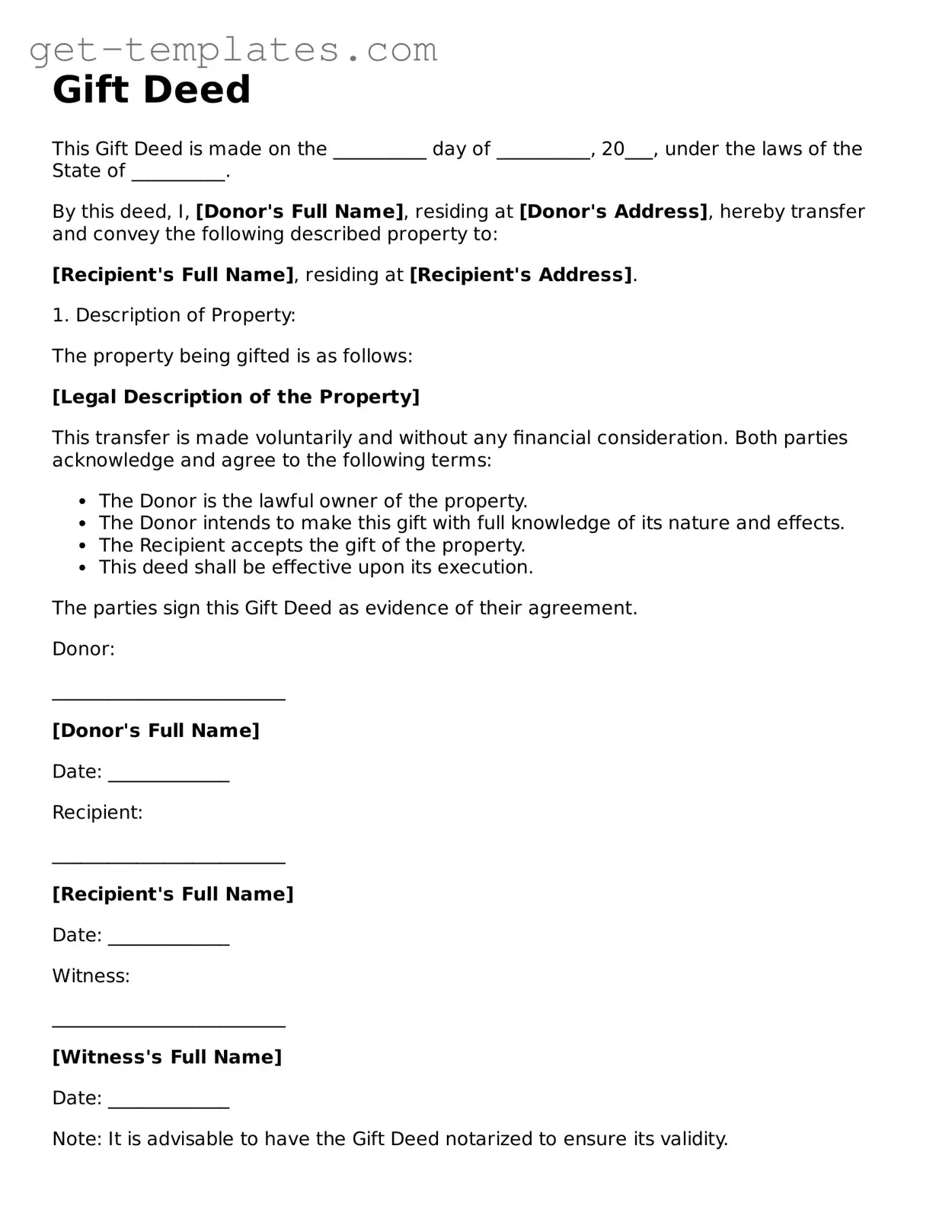Attorney-Approved Gift Deed Form
A Gift Deed is a legal document that facilitates the transfer of ownership of property or assets from one individual to another without any exchange of money. This form is essential for ensuring that the transfer is recognized by law and protects the interests of both parties involved. Understanding how to properly complete a Gift Deed can simplify the process of giving and receiving gifts of significant value.
Get Document Online

Attorney-Approved Gift Deed Form
Get Document Online
You’re halfway through — finish the form
Finish Gift Deed online — edit, save, download made easy.
Get Document Online
or
⇓ PDF Form
